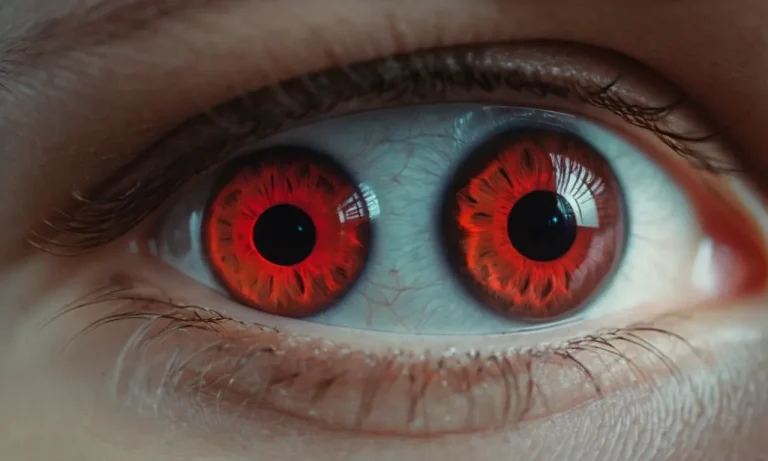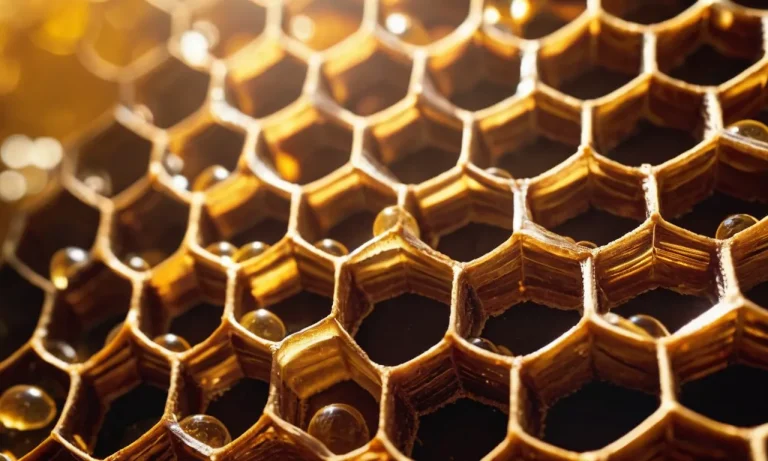Have you ever caught a whiff of someone’s perfume or cologne, only to look around and realize they’re nowhere nearby? This mysterious phenomenon can be bewildering, leaving you wondering if it was just your imagination or a sign of something more.
If you’re short on time, here’s a quick answer to your question: Smelling someone’s scent when they’re not physically present is usually nothing to worry about. It can be caused by a powerful memory association or random neuron firings in your brain.
In this comprehensive guide, we’ll explore the science behind phantom smells, look at common explanations for smelling scents of people who aren’t there, and provide tips for dealing with this unusual experience.
The Science Behind Phantom Smells
Have you ever experienced the sensation of smelling someone’s scent when they are not around you? This intriguing phenomenon is known as a phantom smell or olfactory hallucination. While it may seem mysterious, there are scientific explanations for why this occurs.
Olfactory Hallucinations
Olfactory hallucinations are a type of hallucination that involve the sense of smell. They occur when the brain perceives a smell that is not actually present. These hallucinations can be triggered by a variety of factors, including medical conditions, medication side effects, and even stress. In some cases, olfactory hallucinations can be a symptom of neurological disorders such as epilepsy or Parkinson’s disease.
One possible explanation for phantom smells is that they result from a malfunction in the olfactory system. The olfactory system is responsible for detecting and processing smells, and it is closely connected to the brain’s limbic system, which is involved in emotions and memory. When this system malfunctions, it can lead to the perception of smells that are not actually there.
Smell Memory Triggered by Association
Another reason why you may smell someone’s scent when they are not around is due to the power of smell memory triggered by association. Our sense of smell is closely linked to our memories and emotions. Certain smells can evoke strong memories and emotions, even years after the initial experience.
For example, if you have a strong emotional connection with someone, their scent may become deeply ingrained in your memory. As a result, when you encounter a similar smell, your brain may automatically associate it with that person, even if they are not physically present. This association can trigger the sensation of smelling their scent, creating a phantom smell.
Random Neuron Firings
Random neuron firings in the brain can also contribute to phantom smells. Our sense of smell relies on the activation of specific neurons in the olfactory system. Sometimes, these neurons can fire spontaneously, even without the presence of an actual smell. This can lead to the perception of a phantom smell.
While the exact mechanisms behind phantom smells are not fully understood, ongoing research is shedding light on this intriguing phenomenon. Understanding the science behind phantom smells can help us better comprehend the complexities of our olfactory system and the fascinating ways in which our senses can sometimes deceive us.
Common Explanations for Scent Hallucinations
You Associate the Scent with a Person
Have you ever caught a whiff of a familiar scent and immediately thought of someone you know? It’s not uncommon for our brains to associate particular smells with specific people. This phenomenon is known as scent memory. Our olfactory system, responsible for our sense of smell, has a strong connection to our memory and emotions. So, when you smell someone’s scent even when they’re not around, it could simply be a result of your brain recalling the scent and linking it to that person.
You’re Missing The Person
Smelling someone’s scent when they’re not around could also be a sign that you are missing them. Our sense of smell is closely tied to our emotions, and certain scents can evoke strong feelings of nostalgia or longing. If you find yourself smelling their perfume or cologne, it could be your brain’s way of compensating for their absence and providing a sense of comfort.
You Recently Smelled The Actual Scent
Another possible explanation for scent hallucinations is that you recently encountered the actual scent. Our sense of smell is incredibly powerful and can detect even the faintest of odors. It’s possible that you came into contact with the scent recently, either through someone else or in your environment, and your brain is still processing it, making you perceive the scent even when the source is no longer present.
Stress or Fatigue
Stress and fatigue can have strange effects on our senses and perception. When we’re under stress or feeling tired, our brains can become more susceptible to sensory illusions. This includes smelling scents that aren’t there. So, if you’ve been experiencing high levels of stress or haven’t been getting enough rest, it could be causing these scent hallucinations.
Respiratory Infection or Allergies
In some cases, scent hallucinations may be a result of a respiratory infection or allergies. When our nasal passages are inflamed or irritated due to these conditions, it can affect our sense of smell and lead to olfactory hallucinations. If you’re experiencing other symptoms such as congestion, runny nose, or sneezing, it’s worth considering whether your scent hallucinations could be linked to an underlying respiratory issue.
It’s important to note that scent hallucinations are typically benign and not a cause for concern. However, if you’re experiencing them frequently or they’re accompanied by other concerning symptoms, it’s always a good idea to consult with a healthcare professional to rule out any underlying medical conditions.
When To Be Concerned About Phantom Smells
Causes of Phantom Smells
Experiencing a phantom smell, also known as phantosmia, can be a puzzling and sometimes alarming phenomenon. It refers to the perception of a smell when there is no actual odor present. There are various potential causes of phantosmia, including:
- Neurological conditions such as migraines, epilepsy, or Parkinson’s disease
- Nasal or sinus issues, such as sinus infections or nasal polyps
- Head injuries or trauma
- Certain medications
- Psychological factors
If you are experiencing phantom smells, it is important to consider the potential underlying causes and to determine whether further investigation is necessary.
When to Seek Medical Attention
In most cases, phantosmia is harmless and temporary. However, there are certain situations where it may be necessary to seek medical attention:
- If the phantom smell persists for an extended period of time
- If it interferes with your daily life or causes significant distress
- If it is accompanied by other symptoms, such as headaches, dizziness, or changes in vision
These could potentially be signs of an underlying medical condition that requires evaluation and treatment by a healthcare professional.
Diagnostic Process
When you consult a healthcare professional about phantom smells, they will likely perform a thorough evaluation to determine the underlying cause. This may involve:
- Reviewing your medical history and conducting a physical examination
- Ordering diagnostic tests, such as imaging scans or blood tests
- Referring you to a specialist, such as an otolaryngologist (ear, nose, and throat specialist) or a neurologist
These steps are important in identifying any underlying medical conditions and developing an appropriate treatment plan.
Treatment Options
The treatment for phantosmia depends on the underlying cause. In some cases, addressing the underlying condition, such as treating a sinus infection or adjusting medications, may alleviate the phantom smells. In other instances, specific treatments may be recommended, such as medication for migraines or neurological conditions.
It is important to consult with a healthcare professional to determine the most appropriate treatment approach for your specific situation.
Remember, experiencing a phantom smell on occasion is usually nothing to be concerned about. However, if you have any doubts or the smell persists or worsens, don’t hesitate to reach out to a medical professional for guidance and support.
Tips for Coping with Scent Hallucinations
Distract Yourself
When you experience scent hallucinations, it can be helpful to distract yourself from the phantom smells. Engaging in activities that capture your attention can redirect your focus away from the scent and reduce its impact on your daily life. Whether it’s reading a book, watching a movie, or participating in a hobby, finding something enjoyable and engaging can provide relief from the olfactory illusions.
Focus on Your Breathing
Practicing deep breathing exercises can help you regain control over your senses and alleviate the discomfort caused by scent hallucinations. By focusing on your breath, you can create a sense of calm and relaxation that can mitigate the intensity of the phantom smells. Take slow, deep breaths in through your nose, and exhale gently through your mouth. This technique can help ground you in the present moment and reduce the impact of the olfactory hallucinations.
Keep a Scent Diary
Keeping a scent diary can be a useful tool for understanding patterns and triggers of scent hallucinations. Note down any smells you perceive, the circumstances surrounding them, and how they make you feel. This record can help you identify common triggers and develop strategies to manage or avoid them. Additionally, sharing this information with your healthcare provider can assist them in diagnosing and treating the underlying cause of your scent hallucinations.
Avoid Triggers
Identifying and avoiding triggers that may induce scent hallucinations can help reduce their occurrence. Certain strong scents, chemicals, or environmental factors can exacerbate olfactory hallucinations. For example, some individuals may find that perfumes, cleaning products, or certain foods trigger their scent hallucinations. By minimizing exposure to these triggers, you may be able to reduce the frequency and intensity of your olfactory illusions.
See Your Doctor
If you are frequently experiencing scent hallucinations or they are significantly impacting your daily life, it is important to consult with a healthcare professional. A doctor can evaluate your symptoms, conduct necessary tests, and determine the underlying cause of your olfactory hallucinations. Treatment options may vary depending on the cause and can range from medication to therapy or lifestyle changes. Seeking medical advice is essential in managing and finding relief from scent hallucinations.
Conclusion
Smelling a person’s scent when they’re not physically present is a perplexing yet surprisingly common occurrence. In most cases, it’s nothing to be alarmed about and can be attributed to the powerful link between scent and memory or random firings in the olfactory system. While phantom smells are typically harmless, persistent or disruptive olfactory hallucinations could signal an underlying health issue. By understanding the science behind scent hallucinations, keeping track of your experiences, and using coping strategies, you can manage episodes gracefully when they pop up in your everyday life.






